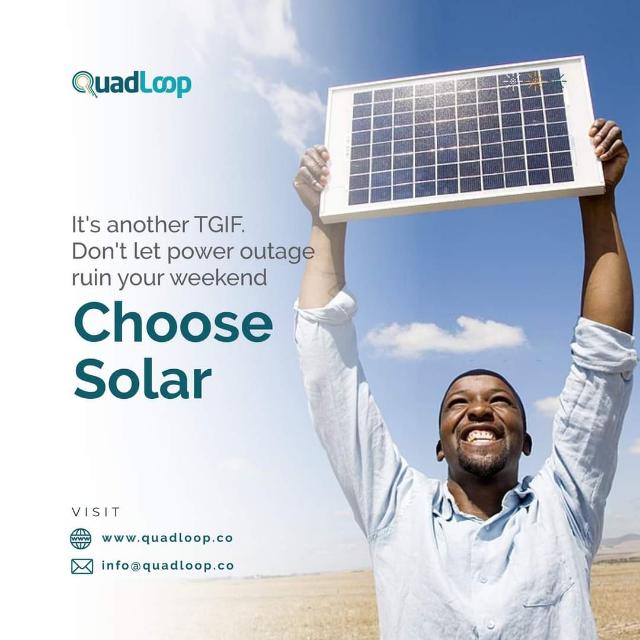As electricity supply in Nigeria has become a problem, QuadLoop, is looking to address the shortfall, especially in rural areas, by producing solar lanterns from electronic waste.
“The power situation in Nigeria is one of the key things that motivated me to start this business. I started looking at energy products that will serve a percentage of the population. There is no way there can be electricity without electronics,” says the founder and chief executive officer of QuadLoop, Dozie Igweilo.
“If we look at local electronics production, we can’t say we want to start from scratch like the Chinese. So, we have to start from somewhere, and what do we have? We have a lot of waste due to our population. And when you talk about waste, what comes to mind is plastic. But people ignore e-waste, which is probably the most hazardous because of the chemical component.”
The company’s maiden product, Idunnu, is a rechargeable solar lantern with batteries and frames developed from e-waste – electrical goods or materials that have been thrown away. The frame is made from glass retrieved from discarded television screens and computer monitors. Each lantern weighs about 2.5kg and comprises 70% e-waste, while the remaining 30% comes from imported components.
At around US$50 per unit, the target markets include hospitals in rural areas and places that are off-grid or lack a constant power supply.
Starting out
Despite having a degree in economics, Igweilo says he had always loved electronics and electrical engineering. In 2016, after months of research on how to convert e-waste into electronic hardware, he started to buy raw materials such as lithium-ion batteries, laptops and televisions from waste recycling companies.
The materials were tested for durability and then turned into products. In the first year, the company produced 40 units of rechargeable solar lanterns.
In 2018, two years after establishing the company, his grandmother gifted him around $250 to buy some basic tools and more raw materials.
“I started small. The early days were like bootstrapping and doing R&D. At that point, I felt the product wasn’t developed enough to meet user needs and I had to return to the drawing board”.
Growth was slow due to the lack of some raw materials such as batteries as well as funding issues. The founder turned the business into a side hustle and returned to paid employment, working with electronics companies.
“I was strategic with the jobs I took. I made sure they were jobs that helped me understand the market better. Before the pandemic, I worked with Zola Electric (an off-grid solar company); that was the last paid employment I had before forging ahead.”
In 2020, Igweilo returned to the business full time and received a $10,000 grant from the Nigerian Climate Innovation Centre (NCIC). This helped him scale production and repackage the lantern from the initial design that utilised 30% of e-waste to a new version with 70%.
Along with its first product, QuadLoop now offers battery repairs and replacement services to companies with similar products. It is also developing another product called the solar home system that charges rechargeable fans.
Creating the market
At the early stage of the business, the QuadLoop team did roadshows and visited rural and semi-urban centres to advertise its product.
“We spoke to hospitals and maternity homes in rural areas that do not have sophisticated equipment like those in the cities and needed lanterns to light up their space. As an entrepreneur, I also attended training programmes to network with people. I still do this, and it helps me create awareness for the product,” the CEO says.
The company now sells larger quantities through its website and e-commerce platforms such as Jumia and Konga.
“We have a lot of people that need solar lanterns, so the demand is always there. One of the things we do to keep our customers is to give discounts for high-volume transactions in terms of battery capacity.
“Those are some of the ways we stay competitive. It is not easy, but we have remained in business for this long because we don’t do a lot of raw material importation. Most of our materials are locally sourced from waste except for a few components we have to import,” he adds.
Growth projections
Igweilo says the company is looking to expand to places where it can give value to consumers, such as some countries in Central Africa with similar electricity supply challenges to Nigeria.
“We are also looking at entering countries like Botswana and Rwanda. We met some people from these countries at an event in Abuja who showed interest in the product and want to partner with us,” he adds.
He explains that the future for local electronics production from e-waste is promising as mindsets are changing and more people are beginning to embrace products developed from waste.






